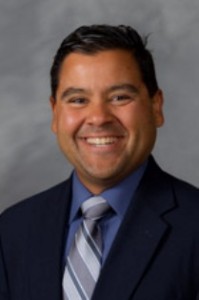Making the Transition from Middle to High School: How Parents Can Help – By Dr. Jose Villalba, Associate Professor of Counseling at Wake Forest University
 Higher academic expectations and worries about connecting socially can make the transition from middle school to high school challenging. Parents can play an important role in helping young teens move smoothly into the more complex world of high school.
Higher academic expectations and worries about connecting socially can make the transition from middle school to high school challenging. Parents can play an important role in helping young teens move smoothly into the more complex world of high school.
Success or failure during the ninth grade year often sets the tone for a student’s entire high school career. Adjusting to the exponential increase in workload is the first major hurdle students and their parents need to get over, but navigating social situations can also be fraught with peril.
Here are six ways for parents to get involved:
Focus on academics
Everything in high school counts. Help your child gather information and identify the best classes to take. Then offer encouragement and support as they strive to handle the increased academic pressure.
Know the first and last name of the high school counselor
If you suspect your child is having a difficult time adjusting, talk to his/her school counselor. If a student signed up for too many honors classes or doesn’t seem to have friends, don’t hesitate to call or e-mail. Counselors are often overworked, but don’t let that deter you from reaching out. Acknowledge that they are busy but ask for their help anyway.
Listen and ask questions
“How’s that history class going?” “How are you fitting in?” “Do you have friends?” “What is difficult for you?” “What is easy for you?” Parents need to do a good job of asking how things are going academically and socially. Getting one-word responses is not an excuse to stop asking. Be persistent.
Advocate for your child
While you probably won’t have the one-on-one personal relationship with a teacher that you might have had in elementary or middle school, don’t be invisible when your child needs you to stand up for them. With visions of helicopter parents dancing in their heads, some parents might be reluctant to get involved because they don’t want to be that parent. Be that parent.
Start with career goals and work backward
Career development begins in kindergarten, but becomes really important in ninth grade. Encourage working backward from where a student thinks they want to go. If they know as an eighth grader that they want to be an engineer, a doctor or a helicopter pilot, help them learn enough about the destination and the steps necessary to get there. Knowing where he/she is headed can help your child make wise choices about classes, extracurricular activities, and volunteer opportunities. Routinely ask, “What do you want to do when you grow up?” If they say, “I don’t know,” then ask, “What do you think you want to do when you get out of high school?”
Play out “what if” scenarios
Over breakfast or on the way to school, present your child with “what if” questions. “What if someone posts something bad about you on Facebook?” “What if someone offers you a joint?” “What if someone says what you are wearing is the ugliest outfit they’ve ever seen?” “What if your best friend is sexting?” You can mix in possible positive situations, too. “What if you make the school soccer team?” “What if the guy or girl you like invites you to a party?” Thinking through possible responses in advance can lead to better decisions.
Finally, remember to recognize that high school has changed a lot in the past ten years. Many things about it are a lot harder. With social media and constant media access, students are bombarded by instant images and feedback on what’s stylish, what’s popular, what’s clever or dumb. It can’t be easy to date, to make friends, and to make mistakes.
BIO
Dr. Jose Villalba is an Associate Professor in the Department of Counseling at Wake Forest University. He attended the University of Florida for his B.S. in Psychology, his M.Ed., his Ed.S. in School of Guidance and Counseling, and his Ph.D. in Counseling and Counselor Education. He is a National Certified Counselor and has authored several works including a book chapter entitled, Individuals and families of Latino heritage, in The Handbook for Developing Multicultural Competence: A Systems Approach. Dr. Villalba is an Associate Editor for Journal for Specialists in Group Work and on the Editorial Board for Journal of Multicultural Counseling and Development. He and his wife, Rachel, and their three children, enjoy spending time at parks, zoos, and movies, and doing other things that families with little ones do.
Tags: Dr. Jose Villalba















